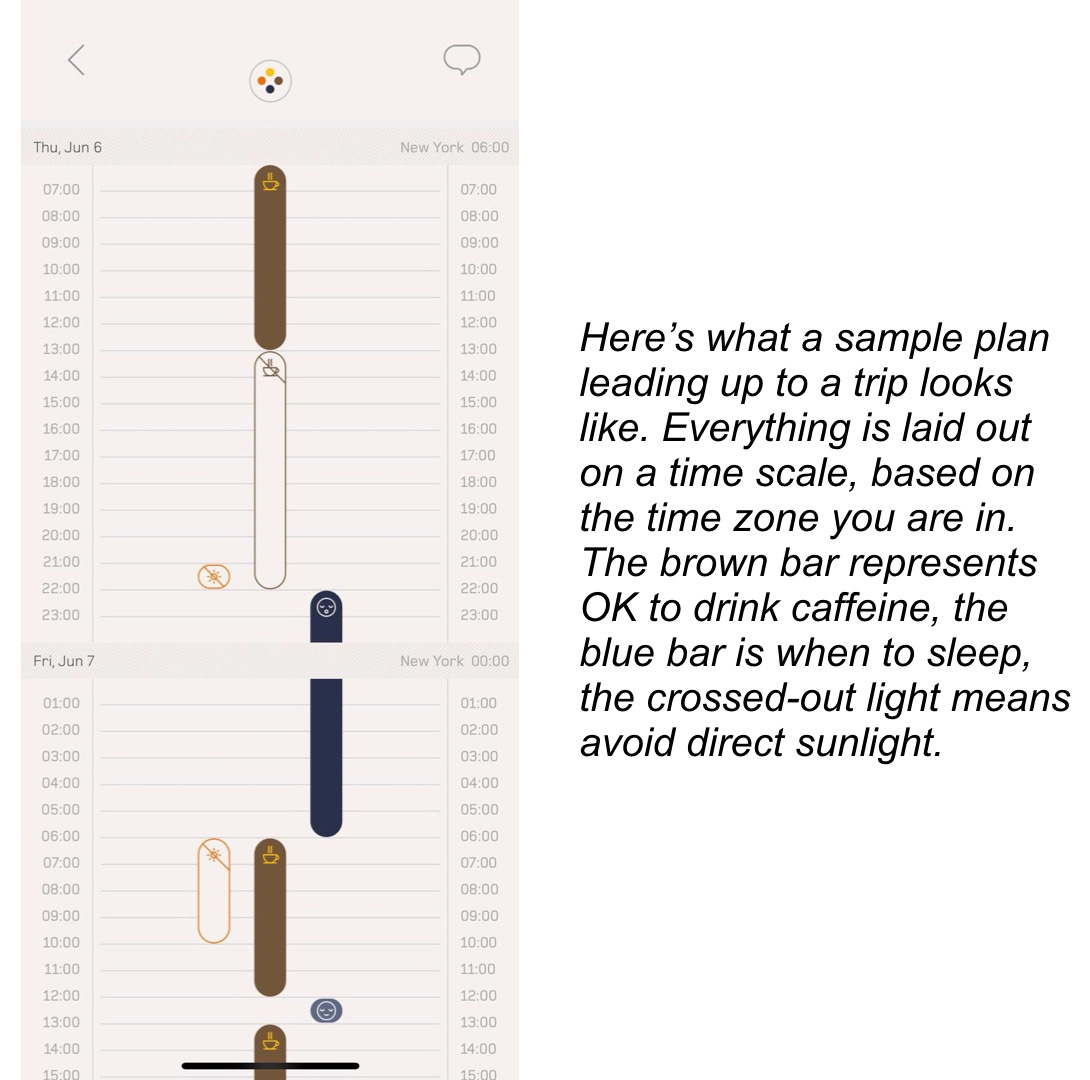
Why is this interesting? - The Jet Lag Edition
On travel, sleeplessness, and the science of jet lag
Colin here. Jet lag is one of life’s unavoidable annoyances. There’s a slew of home remedies, cult approaches, and products that claim to negate it, but I’ve never found anything to completely remove the effects. The best approach for me has been staying super hydrated, minimizing eating on long-haul flights (shout out to just the noodle broth on Cathay Pacific flights), and a run or aerobic activity right when you arrive.
The science is pretty straightforward, according to Alaska Sleep Clinic:
Your circadian rhythm is an ingrained biological clock that regulates periods of sleep and wakefulness. The circadian rhythm also influences other biological factors such as body temperature, times for eating, and the regulation of certain hormones. These functions are calibrated by a group of cells called the suprachiasmatic nucleus (SCN) located in the hypothalamus.
The SCN is connected to the optic nerves and senses changes in daylight that help it regulate certain functions of the body. It uses the presence (or lack) of daylight as it's primary measurement in balancing these functions. It tells us that when there is daylight, that it's time to be awake, and when it is dark, it's time to be asleep. Your circadian rhythm is set to match the environment in which you live in.
So when you travel through a few different time zones this is altered dramatically. The result? Crankiness, fogginess, sleepless nights, and a lack of focus. So much so that there are stories of counterparties in competitive negotiations deliberately scheduling meetings that require red-eye flights as a competitive advantage. It’s that bad.
Why is this interesting?
As a heavy traveler, I pay pretty close attention to this world. Recently, I found a company called Time Shifter that creates specific jet lag plans for people based on where they are traveling and when. And they take a few contrarian positions that defy some of the conventional advice I’ve outlined above.
According to the scientists behind the app:
The key to quick adaptation is timed light exposure. Surprising to many, light is the most important time cue for resetting your circadian clock. Managing when you see and avoid light is critical to adapting to new time zones quickly. The right light exposure at the right time can significantly accelerate your adaptation. Seeing light at the wrong time will make our jet lag worse.
We have defined Timeshifting as the action of someone who times light exposure and light avoidance, sleep and napping episodes, melatonin use, and caffeine intake to quickly “reset” the circadian clock to a new time zone.
So, you input your cities and flight times for arrival/departure, and you get a customized plan (replete with notifications) that tells you when to take certain actions like avoiding or consuming caffeine, getting exposure to natural light, or taking a short nap. It also suggests when you should go to bed or stay awake during the flight. There are a few settings you can tweak based on your own personal profile: do you take melatonin and want it integrated into your plan? Are you an early riser?
My initial trials of the app have been pretty positive. And even if you don’t hit every task (I violated a few late afternoon espresso rules, whoops!) it seems that benefits can be had, giving you back precious sleep cycles and negating the sleepless 4:30 AM CNN International viewing. (CJN)
Chart of the Day:
Was surprised by this FT chart on where your money goes when you buy a coffee. “With consumers drinking more coffee than ever before, it should be a great time to be a grower. However, the price of arabica beans — the higher quality, milder-tasting of the two main coffee beans — is trading just above $1 a pound on New York’s ICE, well under half the value it was just five years ago because of a flood of beans from the leading producer, Brazil.” (NRB)
Quick Links:
CJR on covering climate change more like we covered World War II. “Still, we can learn from the coverage of WWII. We must do our best to make climate change the mainstream news’ central narrative … Practically speaking, reporters should ask whether their beat is affected by climate change.” (NRB)
WITI reader Reilly sent in this link about car dealership bathrooms. "’The bathrooms are the most important part of our dealerships,’ Bergstrom told Automotive News on a stop at Bergstrom Lexus of Appleton. ‘I'm a little bit over the top on that. But it's so indicative of who you are as an organization and the respect you have for both your guests and your fellow employees. It just says so much about how you run your business.’ All Bergstrom bathrooms feature black Kohler plumbing fixtures and fresh flowers every day.”
Lots of photos of lines at Everest have been floating around, but this is the first video I’ve seen and it doesn’t look good (or fun). (NRB)
This is amazing: “Every night, several times a night, Uber and Lyft drivers at Reagan National Airport simultaneously turn off their ride share apps for a minute or two to trick the app into thinking there are no drivers available---creating a price surge. When the fare goes high enough, the drivers turn their apps back on and lock into the higher fare.” (NRB)
Thanks for reading,
Noah (NRB) & Colin (CJN)










